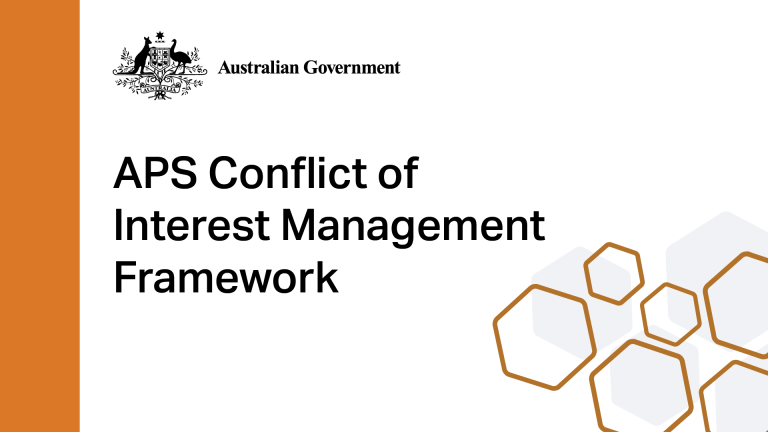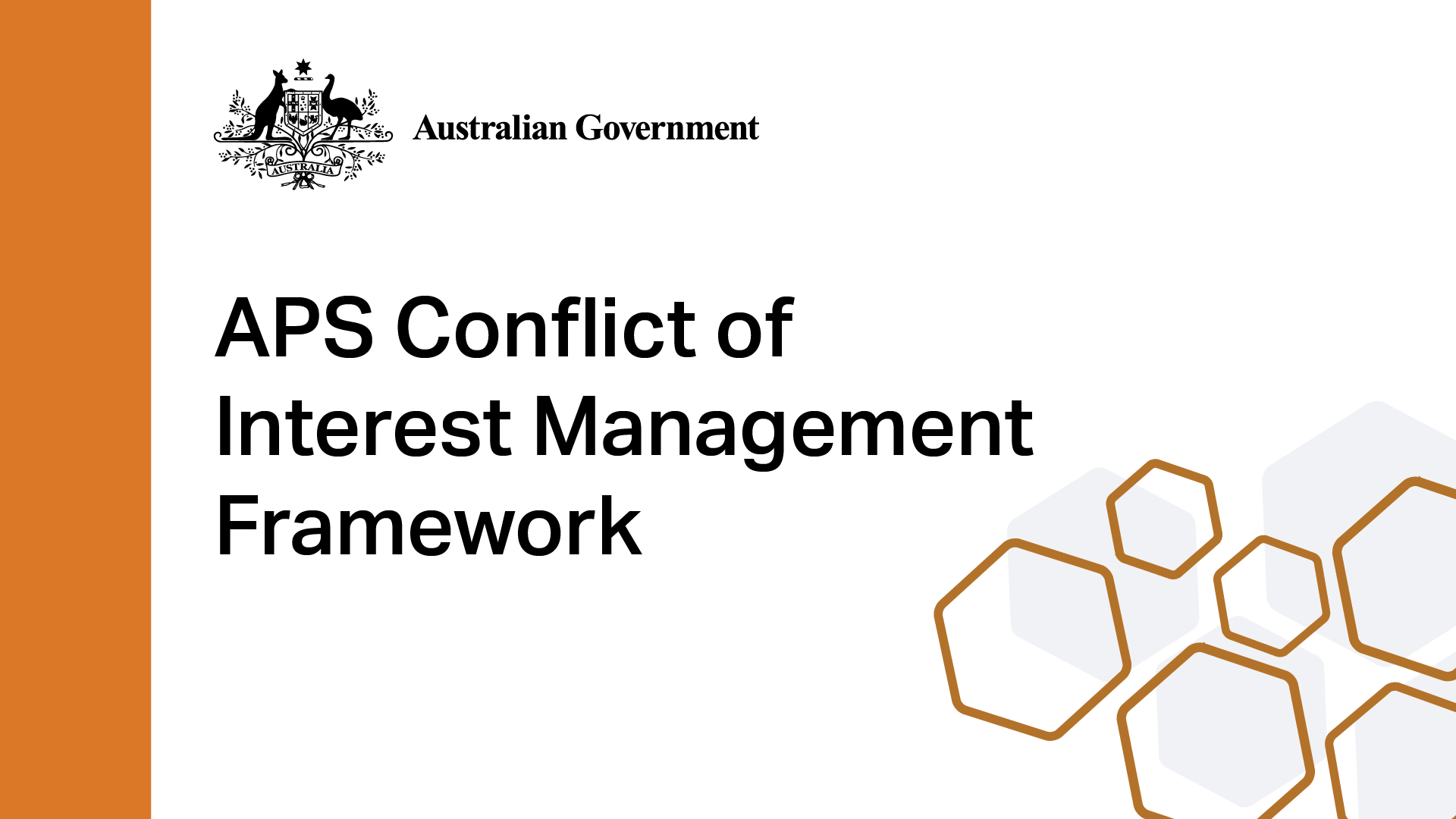By the Australian Public Service Commission
Whether you're new to the Australian Public Service or a seasoned professional, understanding how to identify and manage conflicts of interest is essential to maintaining public trust and upholding the integrity of the APS.
To support this, the Australian Public Service Commission, Department of Finance, and National Anti-Corruption Commission have worked together to develop the APS Conflict of Interest Management Framework and a suite of practical resources. These are now available on each agency’s website.
These resources are designed to help all APS employees, regardless of role or level, understand what a conflict of interest is, why it matters, and how to manage it appropriately. They form part of a whole-of-APS approach to strengthening transparency and accountability.
The Better Practice Model, published by the Australian Public Service Commission, provides clear guidance for agencies to develop or improve their conflict of interest policies. It outlines three levels of practice, from minimum standards to more advanced approaches, so agencies can tailor their settings based on their specific risks and responsibilities.
The Department of Finance’s Resource Management Guide (RMG) supports agencies in preventing, detecting, and responding to breaches of conflict of interest and confidentiality obligations. It includes real-world examples and practical advice that can help staff understand how these issues might arise in everyday work, especially when engaging with external organisations.
Most corrupt conduct arises from a conflict between an official’s public duty and their private interest. The National Anti-Corruption Commission’s new guide, Conflicts of interest and corrupt conduct, gives Commonwealth public officials clear, practical advice on how to recognise, disclose, declare, monitor and manage conflicts of interest to prevent them from becoming corruption risks.
These resources are not just for HR or legal teams, they’re for everyone. Whether you're involved in recruitment, procurement, policy development, or service delivery, understanding conflict of interest obligations helps protect you, your agency, and the public interest.
You can access the full framework and resources via the Australian Public Service Commission, Department of Finance, or National Anti-Corruption Commission websites.





